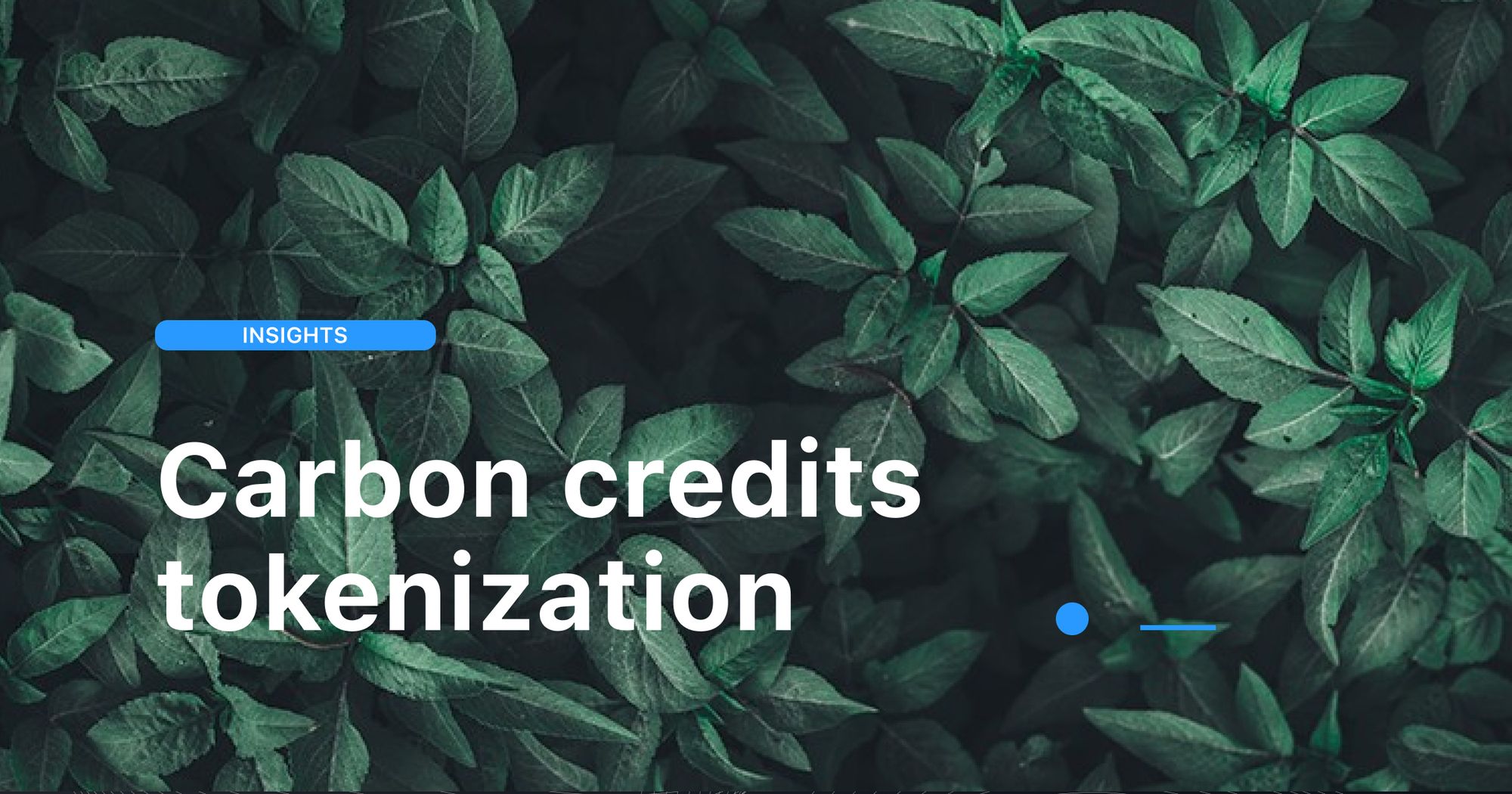What are carbon credits and how to tokenize them?
Selling carbon credits become simpler. In addition to businesses or professional traders on traditional exchanges, it's possible to sell carbon credit tokens to the global crypto investors community. Access to additional markets significantly improves the business's flexibility.

According to the McKinsey report, by 2018, one-third of investments of the largest investment funds representing over $31 trillion were allocated in accordance with environmental and social criteria. The green agenda has been getting a lot of prominence throughout the last year not only in the political arena but also in investment circles.
Related: Tokenization of natural resources: oil & gas, gold, copper, and more
What are carbon credits?
Carbon credits are a type of certificate that represents one ton of CO2 removed from the atmosphere. Carbon credits are awarded to companies that reduce their carbon dioxide emissions. Several dozen countries, including the wealthiest economies, joined international treaties, under which they committed to a certain reduction in carbon emissions.
According to these treaties, countries limit how much carbon dioxide can be emitted by corporations. If companies cannot comply with these requirements, they are required to purchase carbon credits to offset their additional emissions.
Carbon credits are awarded to certified projects that reduce carbon emissions or directly capture emitted carbon dioxide. Corporations finance green projects by purchasing carbon credits from these environmentally friendly businesses, creating an additional incentive for developing green technologies.
Why tokenize carbon credits?
Tokenized carbon credits provide two critical benefits.
1. Selling carbon credits become simpler. In addition to businesses or professional traders on traditional exchanges, it's possible to sell carbon credit tokens to the global crypto investors community. Access to additional markets significantly improves the business's flexibility. It allows finding better prices as it may not always be possible to encounter buyers willing to purchase the number of carbon credits you want to sell at attractive prices. Crypto markets are well-known for deep liquidity, so it may be easier to monetize your carbon credits.
2. You can provide extra bonuses or incentives to your investors. In particular, you can create additional revenue from the sale of tokenized carbon credits or make distributions of carbon credit tokens to your existing investors. This enhances the expected yield on investing in your business, making the opportunity more attractive. Moreover, it's an excellent way to raise your image as an environmentally-friendly and innovative company, making it even more appealing for investors who care about ESG and innovativeness.
How can you tokenize carbon credits?
There are two models of carbon credit tokenization: a direct approach and tokenizing cash flow from carbon credit sales. They are similar to the two models of tokenizing natural resources.
Advice and research on the best implementation of tokenization for your business. Get Free 30 min Consultation.
The direct way means that one token represents one or several carbon credits. Under such an approach, tokens will less probably be classified as securities and, respectively, be regulated as such. Such a framework grants access to more investors and more markets at which carbon credits can be traded.
The drawback of this option is finding corporate buyers that use crypto exchanges. Accordingly, if such carbon credits are harder to convert into actual usage, they will be traded with a discount regarding their fair price. However, a liquidity premium should offset this factor to the price. Also, it's quite likely that token-based markets for carbon credits will become a norm due to the advantages discussed above so more corporations will be using them as part of everyday business conduct.
The indirect approach is issuing tokens, which give investors the right to income from the sale of carbon credits on traditional markets. In such a model, the company itself is responsible for selling carbon credits.
The indirect strategy has two disadvantages. Firstly, it's more complicated from the operational point of view, as the company is responsible for funding buyers and distributing profits. Secondly, such tokens are likely to be treated as securities. They must comply with corresponding regulatory requirements, such as the need to register or leverage exemptions, a limited number of available trading venues, and other demands.
Related: Multijurisdictional offering strategy: how to avoid legal risks

An essential advantage of the indirect model is that investors get tangible cash flows from their tokens, not other tokens they need to trade. This will be more understandable and straightforward for many investors, which, therefore, will make it easier for you to reach such investors.
The profile of the investors you target determines whether or not this is an important factor. Sophisticated crypto investors would have carbon credit tokens that provide no direct revenue but which they can trade, stake, and conduct other related operations. Meanwhile, more traditional investors will likely prefer a simpler option.
It's also possible to utilize a hybrid approach that suggests issuing two tokens – a security token providing the right to business cash flows and a utility token representing carbon credits. Purchasers of security tokens can be additionally awarded carbon credit tokens as a form of return; you can also use the utility token format to access additional liquidity and thus deliver more revenue from the sale of carbon credits to the security token holders.
Related: Tokenization of energy business
Tokenizing carbon credits is a strategy that works both for profits and a positive public image. If you want a more in-depth look into how you can tokenize your carbon credits and attract more capital to your business, feel free to book a complimentary 30-minute consultation with Stobox specialists.

